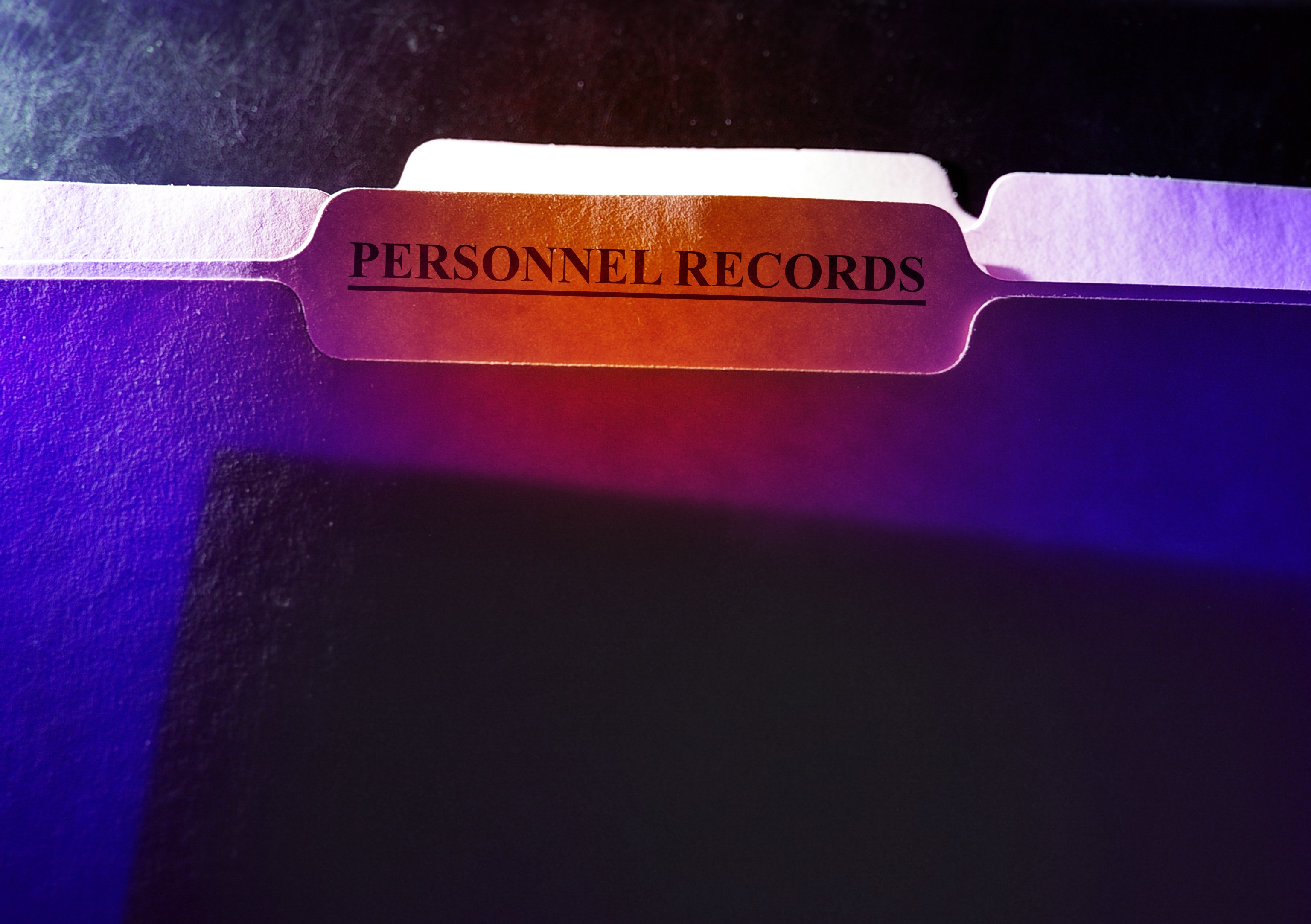What's In My Personnel File?

I have been bouncing between doing my CE credits and cleaning things up for year-end. One of the CE courses I took was on data security and a large portion of it was protecting your employees' data. I knew I had to file some things in our personnel files, so I checked out ThinkHR to see what they had to say about what should and should not be in the file, and how they reinforced what I learned about protecting it.
Here's what they had to say:
Access to Personnel Files
Pennsylvania law regarding an employee’s right to access personnel files, located at 43 Pa. Consol. Stat. Ann. §§ 1321 – 1234, covers all employers.
Under the law, upon the request of an employee, an employer must — at reasonable times — permit that employee or an agent designated by the employee to inspect the employee’s own personnel files used to determine qualifications for employment, promotion, additional compensation, termination, or disciplinary action.
DefinitionsUnder the law, the following terms apply:
- Employee includes any person currently employed, laid off with re- employment rights, or on leave of absence. Employee does not include applicants for employment or any other person.
- Employer includes any individual, person, partnership, association, corporation, the Commonwealth or any of its political subdivisions, or any agency, authority, board, or commission created by them.
- Personnel files, if maintained by the employer, are to include any of the following:
- Application for employment
- Wage or salary information
- Notices of commendations, warning, or discipline
- Authorization for a deduction or withholding of pay
- Fringe benefit information
- Leave records
- Employment history with the employer, including the following:
- Salary information
- Job title
- Dates of changes
- Retirement record
- Attendance records
- Performance evaluations
Personnel files do not include the following:- Records of an employee relating to the investigation of a possible criminal offense.
- Letters of reference.
- Documents which are being developed or prepared for use in civil, criminal, or grievance procedures.
- Medical records.
- Materials which are used by the employer to plan for future operations.
- Information available to the employee under the federal Fair Credit Reporting Act (FCRA).
Inspection
Personnel records must be made available for inspection during the regular business hours of the office where these records are usually and ordinarily maintained, when sufficient time is available during the course of a regular business day. The employer may require the requesting employee or the agent designated by the employee to inspect the records on the employee’s or agent’s free time. Except for reasonable cause, the employer may limit inspection to once every calendar year by an employee and once every calendar year by the employee’s designated agent, if any.
Supervised Inspections
Employers may require inspections of personnel files to be in the presence of an official designated by the employer. The employer must allow sufficient inspection time, commensurate with the volume content of the file.
Removing or Copying Files
Employers do not have to allow employees or their representatives to remove their personnel files from the employer’s premises or to make copies of such files. However, an employee or the employee’s agent can take notes. In any instance, the employer retains the right to protect files from
loss, damage, or alteration to ensure the integrity of the files.
Written Requests
At the employer’s discretion, the employee may be required to file a written form to request access to the personnel file of files or to indicate a designation of agency for the purpose of file access and inspection. This form is solely for the purpose of identifying the requesting individual or the
designated agent of the requesting individual to avoid disclosure to ineligible individuals.
To assist the employer in providing the correct records to meet the employee’s need, the employee must indicate in the written request, either the purpose for which the inspection is requested, or the particular parts of the personnel record the employee wishes to inspect or have inspected by the employee’s agent.
Enforcement
The Bureau of Labor Standards of the Department of Labor and Industry is authorized and directed to enforce the provisions of Pennsylvania’s law regarding access to personnel files.
Upon a petition and hearing by either an employer or employee, the bureau is to make and enforce appropriate orders to provide access to personnel records, and to provide an opportunity for an employee to place a counter statement in the employee’s file in the event of an alleged error. However, the bureau has no authority to inspect personnel files, to investigate alleged errors detected by an employee in the file, or to attempt remedial action unless the records indicate violations of other sections of the Pennsylvania statutes.
Aggrieved employees must avail themselves of any appropriate civil remedies available, such as grievance procedures under a union contract.


Share Your Thoughts